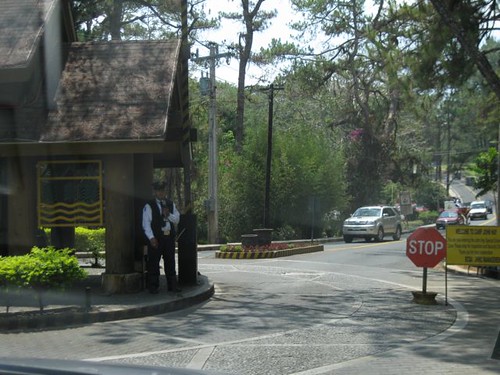TIPS ON RUNNING RACES SAFELY FROM THE EXPERTS
During last Sunday’s 34th Milo Marathon, a young male runner gunning for his 21km PR, collapsed 1km away from the finish line and was rushed to the hospital. Sadly, he passed away yesterday.
I haven’t stopped thinking about him since I heard the news. I’ve collapsed once when I had just started running, and so did my best running buddy, Annie, as she ran so swiftly for a podium finish at Nike Human Race 2008. Yes, it could’ve been any one of us.
I thought the best way to help in this kind of situation was to try to prevent it from happening again. I publish race reviews with the sole purpose of guiding organizers how to improve our races, not to rant or complain. I thought I’d post this today to guide our runners, especially the beginners, on how to run safely in races.
I got in touch with our top experts in the field and asked for their top safety tips when participating in a race. Read it twice or thrice over. Run safe, guys and girls!
EXPERTS:
- Coach Rio de la Cruz
- Coach Jim Lafferty
- Coach Jim Saret
- Coach Ani de Leon
- Dr. George Canlas
ON PREPARATION
- COACH RIO: Prepare for the distance you are planning to participate in by training properly.
- COACH RIO: Before the race, especially when it’s long distance, eat a minimum of 2 hours before the race.
- DR. CANLAS: Be fit to run and not run to be fit.
ON HYDRATION
- COACH ANI: Hydrate well, and douse yourself with water at the aid stations. Keep your core temperature as low as you possibly can.
- COACH JIM L.: Stay hydrated. Not only water but importantly electrolyte solutions such as Gatorade or Powerade. When you’re thirsty, you are already dehydrated!
- COACH RIO: Don’t wait until you feel thirsty to hydrate. Drink fluids at least every 10 to 15 mins. Better yet, take a few sips at each water station.
- DR. CANLAS: Have a good hydration plan.
ON SLEEP
- COACH ANI: Sleep, sleep, sleep… it has been shown that without enough sleep running races like this is extremely high risk
- COACH RIO: Make sure you get enough sleep a day or two before the race.
ON LIMITATIONS
- COACH ANI: Stay within your zones… do not go beyond your aerobic threshold, especially for longer races. Manage your efforts well and stay within your capabilities.
- DR. CANLAS: Know your limits.
- COACH JIM S.: Avoid the urge to “sprint with the pack” during the start of the race. Stick to your regular or planned pace.
ON TRAFFIC
- COACH JIM L.: Watch out for traffic! This means both other runners, particularly in larger races, and cars/jeepneys in open road races. Always be prudent and stay clear!
ON SIGNS AND SYMPTOMS
- COACH JIM S.: If you feel some form of pain during your run, slow down and have a feel of how bad it really is. If it seems to be going away, then go ahead and resume your regular pace. However if the pain persists and/or even increases in pain as you continue to run, seriously consider stopping and getting some help. Pain is the body’s way of letting us know something is wrong. No race is worth the risk of hurting yourself by continuing to run and causing a minor injury to turn into a major setback.
- COACH JIM L.: Be smart. If you’re feeling poorly or sense “something is wrong”, a pain or sensation that’s new to you, TAKE A BREAK. Its not worth the risk and better to run again another day. I’ve seen too many runners trying to “push through” and they either ended up in extended injury, or worse.
- COACH RIO: If you feel something is wrong, such as difficulty of breathing or pain in the chest, slow down. Stop and look for a medic or ask for help from fellow runners.
POST RACE
- COACH JIM S.: Decide if you need to see a medical specialist if you feel something “off” with your body.
- COACH JIM S.: Do not think of lying down immediately after your event. Keep moving.














